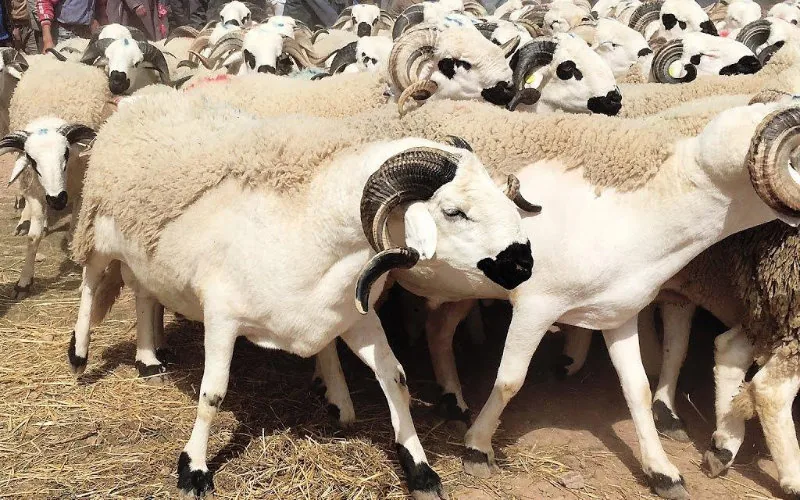Morocco Faces Billions in Economic Losses as Eid Al-Adha Ritual Canceled

The cancellation by King Mohammed VI of the Eid Al-Adha sacrifice ritual has made some happy but also some unhappy.
The decision to cancel the Eid al-Adha ritual this year will have a direct economic impact on commercial dynamics in Morocco, with several seasonal sectors being organically linked to this festival, A Ghanbouri, a researcher in economic affairs, told Al3omk. The livestock and transport sectors were the most affected by this measure. The decrease in demand for sacrificial animals has led to significant losses, estimated between 12 and 14 billion dirhams.
The seasonal transport sector and temporary markets are expected to experience a sharp slowdown. The cancellation decision will indeed result in the cessation of activity for about 20,000 to 30,000 seasonal workers. Leather production will see a decrease of about 4 to 5 million units, which represents a net loss of income for the leather sector estimated between 2 and 3 billion dirhams, Ghanbouri specified. According to him, the decrease in demand for fodder, estimated between 20 and 30%, will lead to a contraction in the volume of its transactions, which will result in market losses estimated at 15 billion dirhams.
However, the decision has not had a negative impact on Moroccan households. Despite the negative repercussions of this decision on certain sectors, it will help to ease the burden on Moroccan households, who will save about 20 billion dirhams initially intended for sacrifices, said the economic analyst. This will allow families to redirect their consumption towards other sectors such as food, equipment, clothing or even debt repayment.
Furthermore, the decision will help reduce the need to import 1.7 million sheep, which will save about 5.1 billion dirhams in foreign currency, which could help ease pressure on the trade balance and strengthen the stability of meat prices, he emphasized, noting that this reflects the complexity of the economic effects of this decision, between immediate direct cost and long-term structural benefits.
Related Articles
-

Obesity Crisis Grips Morocco: 1 in 7 Adults at Risk by 2025, Urban Areas Hit Hardest
9 September 2025
-

Morocco Clarifies Fines for International License Plates Amid Road Safety Push
9 September 2025
-

Senior Police Officer Caught Red-Handed in Bribery Sting Operation in Meknes
9 September 2025
-

Morocco Cracks Down on Rampant Misuse of State Vehicles by Officials
9 September 2025
-

Morocco-Algeria Rift Deepens: King’s Peace Overtures Fall on Deaf Ears
9 September 2025